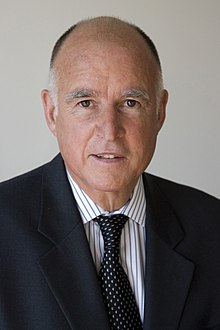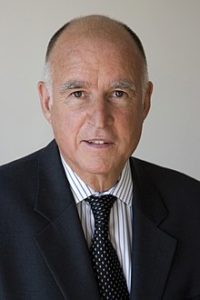

Years ago I was on a flight out of Monterey and, as is my wont, I struck up a conversation with the passenger beside me. She was a local and somehow we got talking about the local daily newspaper, the Monterey Herald. I told her that because of its price relative to value, I had dropped it a few years earlier but that I thought I was missing important local news and was thinking of resubscribing.
“Oh, you should,” she said.
“Why?” I asked.
“I admit I’m biased,” she said, “my husband is one of the reporters.”
I asked her his name and she told me. I recognized it. He had had a fairly snarky attitude in some of his reporting, especially on issues having to do with libertarian or conservative causes. Not always, by the way, and maybe not even often, but often enough for me to notice.
I could have launched into a critique of her husband. But what would have been the point? It might have led to an uncomfortable flight for both of us.
So I went a different route. I told her something I liked about him.
I told her about my favorite piece he ever wrote in the Herald. I had clipped it and it had burned in my office fire but I remembered it well. He had written an op/ed about his own experience decades earlier as a reporter for a different newspaper in the central California valley. It was during Jerry Brown’s first 2 terms as governor, sometime between January 1975 and January 1983. Brown was looking for someone to fill a judge slot and in order to satisfy a particular constituency, he thought he had to choose someone of Greek descent. So he and his people looked around to find someone to fill the slot. This reporter had happened to follow the story closely and was struck by how the people making the choice seemed to put zero or close to zero weight on anything about the potential appointee other than his Greek heritage. Would he be a good judge? They didn’t seem to care.
This reporter concluded the Herald op/ed by stating his hope that this is not how government works and that what he saw was rare.
I told his wife that I had concluded, based on my experience and reading, that what her husband had seen was in the normal range. Government officials just didn’t have strong incentives to make good decisions. I told her that I wished he had written more articles in which he delved into how government actually works.

READER COMMENTS
Steve X
Jun 24 2021 at 8:31pm
I work in government and live in a city where the government is the big industry.
This is very often how government works.
It is pathetic how little of the actual goings on of government journalists actually report on. A great deal of political journalism is opinionated gossip columns.
It is surprising to me that more people in government who see the crazy goings on that happen are not more libertarian.
When people say ‘This should be fixed by the government’ they seem to assume a wise, calm government will come and carefully consider the issues, not the realistic shambles that actually does.
Politicians are often clueless and make huge crazy demands on public service workers. People in senior positions in the state often lack appropriate experience for the decisions they are making.
There are some really admirable hard working people, but there are also many people who are just ambitious and are not up to their job.
It is quite remarkable that it works at all.
David Henderson
Jun 24 2021 at 9:41pm
Thanks for your thoughts, Steve X.
Phil H
Jun 28 2021 at 7:58pm
While I’m sure all this is true, it also sounds very much like my experience working for a large private company. It seems likely that these are just hard-to-eradicate features of large organizations.
That said, I certainly agree with David H that more/better reporting would be a good thing.
nobody.really
Jun 29 2021 at 4:05pm
“Journalism is the art of translating abysmal ignorance into execrable prose. At least, that is its purest and most minimal essence. There are, of course, practitioners of the trade who possess talents of a higher order—the rare ability, say, to produce complex sentences and coherent paragraphs—and they tend to occupy the more elevated caste of ‘intellectual journalists.’ These, however, are rather like ‘whores with hearts of gold’: more misty figments of tender fantasy than concrete objects of empirical experience. Most journalism of ideas is little more than a form of empty garrulousness, incessant gossip about half-heard rumors and half-formed opinions, an intense specialization in diffuse generalizations. It is something we all do at social gatherings—creating ephemeral connections with strangers by chattering vacuously about things of which we know nothing—miraculously transformed into a vocation.”
David Bentley Hart, Eastern Orthodox theologian, philosopher, author, and cultural commentator
Comments are closed.